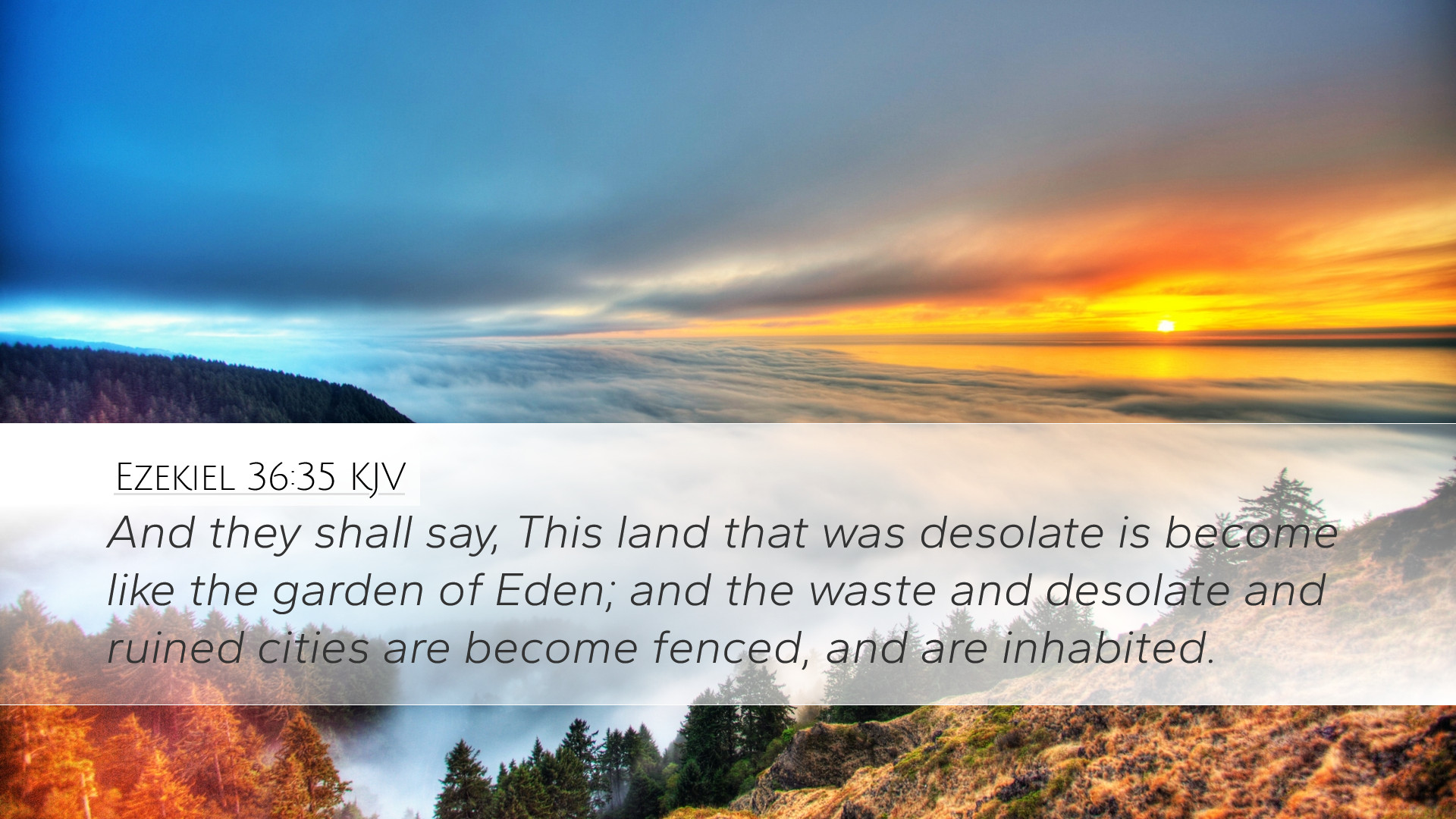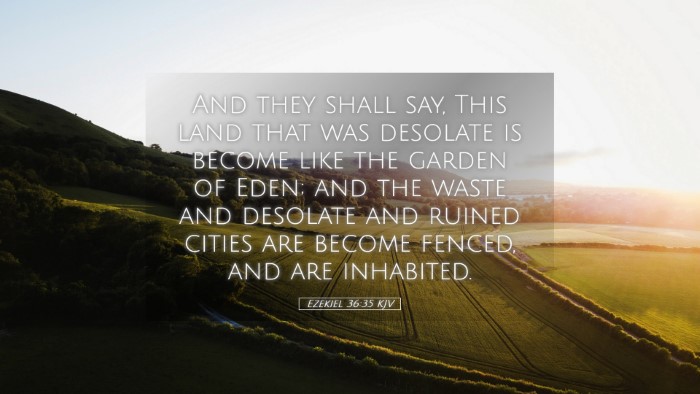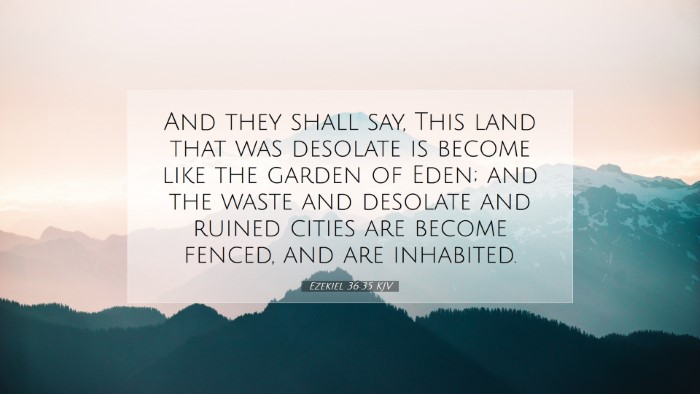Ezekiel 36:35 - Commentary and Insights
Bible Verse: "And they shall say, This land that was desolate is become like the garden of Eden; and the waste and desolate and ruined cities are become fenced, and are inhabited."
Introduction
Ezekiel 36:35 encapsulates a profound transformation where desolation becomes restoration, reflecting God's redemptive power and mercy. In this commentary, we will explore the deeper meanings of the verse as presented in renowned public domain commentaries, allowing for a rich theological discourse useful for pastors, students, theologians, and Bible scholars.
Contextual Background
This verse forms part of a prophetic declaration concerning the restoration of Israel. Ezekiel prophesied during the Babylonian captivity, a period marked by despair and desolation for Israel. The promise of renewal was not merely physical but also spiritual, indicating the work of God in renewing His covenant people and their land.
Commentary Insights
Transformation from Desolation to Abundance
Matthew Henry emphasizes that the stark contrast between a desolate land and the garden of Eden provides a vivid image of restoration. The phrase "like the garden of Eden" signifies return not only to physical fertility but also to a state of divine favor and blessing. This transformation serves as a metaphor for spiritual renewal; just as Israel's land will flourish, so too will the hearts of the people who turn back to God.
Theological Implications
Albert Barnes points out that this promise of renewal reflects God's covenant faithfulness. The restoration of the "waste and desolate" cities underscores the holistic nature of restoration – including societal, ecclesiastical, and individual dimensions. Barnes highlights that God acts in history to fulfill His promises, providing assurance to believers that their spiritual and physical circumstances can likewise be transformed through divine intervention.
Symbolism of the Garden of Eden
Adam Clarke delves into the rich symbolism of the "garden of Eden." The allusion to Eden speaks not just to physical beauty but to the ideal state of humanity and creation prior to the Fall. Clarke suggests that this restoration foreshadows the ultimate redemption and is a type of the new creation that believers anticipate in the eschatological promise of God's Kingdom. As such, this verse offers a glimpse of hope, reconciling the present suffering with future glory.
Practical Applications
For pastors and students, Ezekiel 36:35 invites profound reflection upon the nature of God's promises for restoration in their ministries and personal lives. It provides a framework for understanding that while desolation may be evident, God's transformative power is at work.
- Hope in Desolation: This verse can be a source of encouragement for believers facing personal crises or societal upheaval, reminding them of God's capability to bring renewal.
- Active Participation: Just as Israel was called to return to God, modern believers are invited to engage actively in their spiritual restoration through repentance and faith.
- Community Restoration: Churches can adopt this vision of transformation for their communities, seeking to be agents of reconciliation and renewal in their locales.
Conclusion
Ezekiel 36:35 serves as a beacon of hope illustrating the divine ability to transform desolation into abundance. The insights from Matthew Henry, Albert Barnes, and Adam Clarke collectively present a rich tapestry of meaning that pastoral leaders, students, and scholars can draw upon. As we reflect on this promise of restoration, we are called to embody the transformative work of God in our lives and communities, echoing the eternal truth that where there is desolation, God can create anew.


